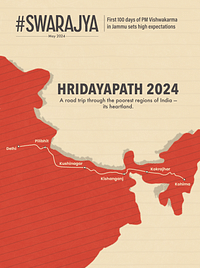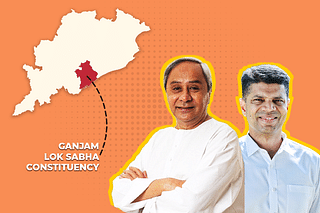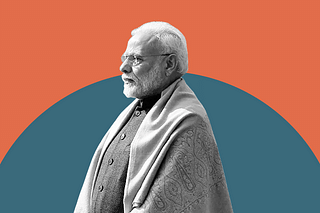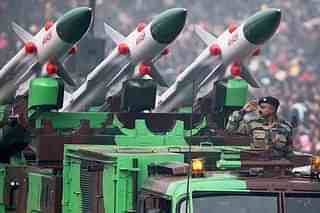Ideas
Sorry, Health Experts. Telling Us Now That Lockdown Was Wrong Is Hindsight, Not Expertise
R Jagannathan
Jun 01, 2020, 12:36 PM | Updated 12:36 PM IST
Save & read from anywhere!
Bookmark stories for easy access on any device or the Swarajya app.
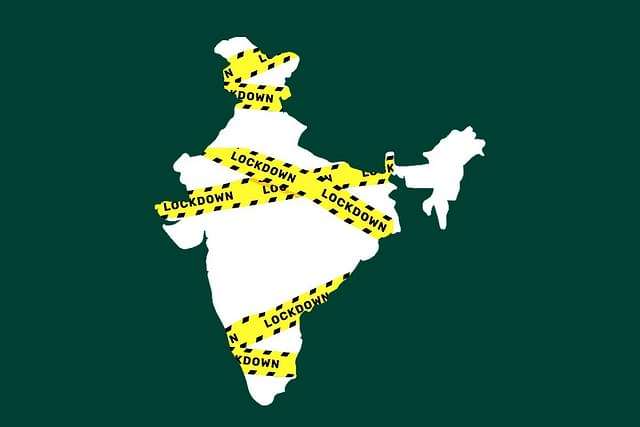
One has to question the credibility of 'experts' who come out with their ‘I-told-You-Sos’ after benefiting from two-and-a-half months of actual experience and 20:20 hindsight.
In an open letter to the Prime Minister, representatives from the Indian Public Health Association, the Indian Association of Preventive and Social Medicine, and the Indian Association of Epidemiologists have said that had they been consulted before the lockdown, the results would have been much better.
They said in their joint statement: “Had the government of India consulted epidemiologists who had (a) better grasp of disease transmission dynamics compared to modellers, it would have perhaps been better served.” The statement alleged that the lockdown was the result of listening to advice from “clinicians” and “academic epidemiologists” with limited field training and skills, The Economic Times reported today (1 June).
If this does not sound like professional jealousy, one wonders what is. If these 'experts' really thought that the government was all wrong in its decision to impose a lockdown on 24 March, they could have vociferously objected to it much earlier. But they didn’t.
Let’s also debunk another idea: that anybody had a really brilliant model to deal with the coronavirus at the beginning of February or even in March. Sweden, which had taken a relaxed attitude, and Britain, which too was sure nothing would go wrong, are today being pilloried for not locking down earlier. The Swedish model is being questioned today. South Korea, which lockdown earlier, and was deemed to be a model for others to follow, is now considering another lockdown as cases are spiking again.
At the time the Indian government took its decision to lock down, there were enough examples from Italy, France, Spain and the UK and the US to suggest that the virus was dangerous and a killer. India, with its weak medical infrastructure, needed time to ramp up its capabilities – which is what the lockdown provided.
One shudders to think how the government would have been abused had the mortality rates been as high in India as in Italy or Spain. Luck (and possibly the early stage of lockdown) may have helped us.
Apart from ramping up hospital and testing capabilities, the two other objectives of the lockdown were to prevent the entry of infected persons from abroad, and to slow down the spread domestically by disallowing free movement of persons within the country. Our lockdown was draconian precisely because the assumption in March was that one or two months of movement restrictions will prevent community transmission.
That the lockdown did not prevent community transmission is something we know today. It could not have been assumed in March.
The three things our lockdown has taught us are the following:
One, we should have had a narrower lockdown initially, restricted to the hotspots in some cities and districts. This is what we are doing now. We have learnt this through experience.
Two, in an overcrowded country, where population densities are very high and living quarters and public transport are cramped, at least one of the prerequisites for a successful lockdown – physical distancing – was near impossible. Only masks and hand-washing were possible.
We failed to prevent a wider transmission, but we did succeed in ramping up our ability to deal with Covid-19 considerably with the lockdown. We now produce our own personal protection equipment and testing kits in the required quantities.
It is worth remembering that all expertise is limited. Experts can tell you how to prevent a disease, but they cannot ultimately tell you whether their prescriptions can work, and under what conditions. They also cannot tell you the economic consequences of their advice.
In Britain, where Boris Johnson has been blamed for taking expert advice too late, there is a realisation that the experts themselves did not emphasise the immediacy of their concerns too much when it was needed. This is what our own experts have done now. Claiming they had all the answers – after seeing Covid-19 play out for two-and-a-half months.
Save & read from anywhere!
Bookmark stories for easy access on any device or the Swarajya app.
Jagannathan is Editorial Director, Swarajya. He tweets at @TheJaggi.
Support Swarajya's 50 Ground Reports Project & Sponsor A Story
Every general election Swarajya does a 50 ground reports project.
Aimed only at serious readers and those who appreciate the nuances of political undercurrents, the project provides a sense of India's electoral landscape. As you know, these reports are produced after considerable investment of travel, time and effort on the ground.
This time too we've kicked off the project in style and have covered over 30 constituencies already. If you're someone who appreciates such work and have enjoyed our coverage please consider sponsoring a ground report for just Rs 2999 to Rs 19,999 - it goes a long way in helping us produce more quality reportage.
You can also back this project by becoming a subscriber for as little as Rs 999 - so do click on this links and choose a plan that suits you and back us.
Click below to contribute.
